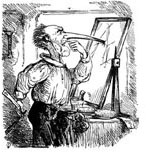
Why Is the European Union Bullying Poland & Hungary?
GUEST COLUMN
What compels a bully? Some would argue that outward shows of force disguise a deep, interior weakness. Even animals, when confronted by competition or a perceived threat, intimidate their rivals into submission by manifesting their power. Thus, bullying can be simultaneously considered a defense mechanism and a coercive tool.
Bullies are relentless. When I was a child, the preferred instruments of their ridicule were sticks and stones, but their appetite for inflicting pain grows increasingly insatiable with age. Among adults, the most vicious attacks are hurled with words.
The European Union (EU) arose out of the ashes of World War II to reconcile bitter rivals West Germany and France, and eventually the rest of Western Europe, as a pan-European federation of independent member states. It accomplished this remarkable task not by sidelining national sovereignty for the collective good, as that approach had proved unsuccessful in East Germany and across the Soviet Union; rather, it was founded on the shared values common to all members. The Treaty of Lisbon, the 2007 amendment to the EU’s constitutional basis, affirms that those shared values are respect for human dignity and human rights, freedom, democracy, equality, and the rule of law. How the EU applies those founding principles varies according to different member states, however, and it has an inconsistent track record.
The EU would have us believe that the chief current threats to its founding values are the conservative Law and Justice Party in Poland and the Fidesz Party in Hungary. Despite the fact that both parties are in power due to overwhelming public support, the EU perceives their policies as undemocratic because they challenge the bloc’s status quo. The EU has publicly opposed both democratically elected governments on a number of issues, ranging from judicial and constitutional reform, migrant policy, and media reform to logging in ancient forests, all of which are characteristically in the EU’s purview but are pursued in a manner that is unprecedented and hostile.
You May Also Enjoy
We can make peace with nature only by restoring harmony within ourselves. It is holiness that manifests our true nature in the plan of God.
Ed. Note: In this issue we offer a guest editorial from John R. Quinn, Archbishop…
Here we review The Novels of Charles Williams

